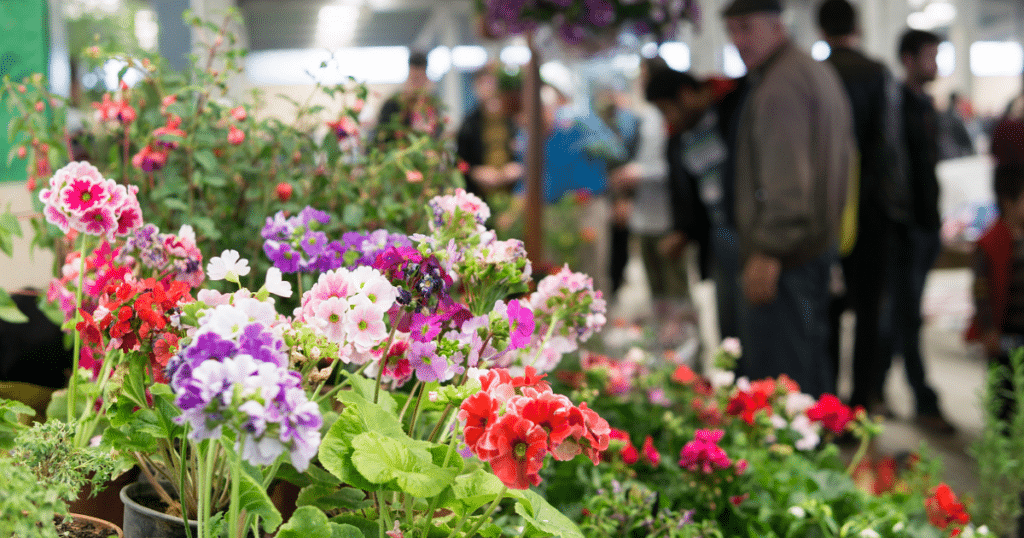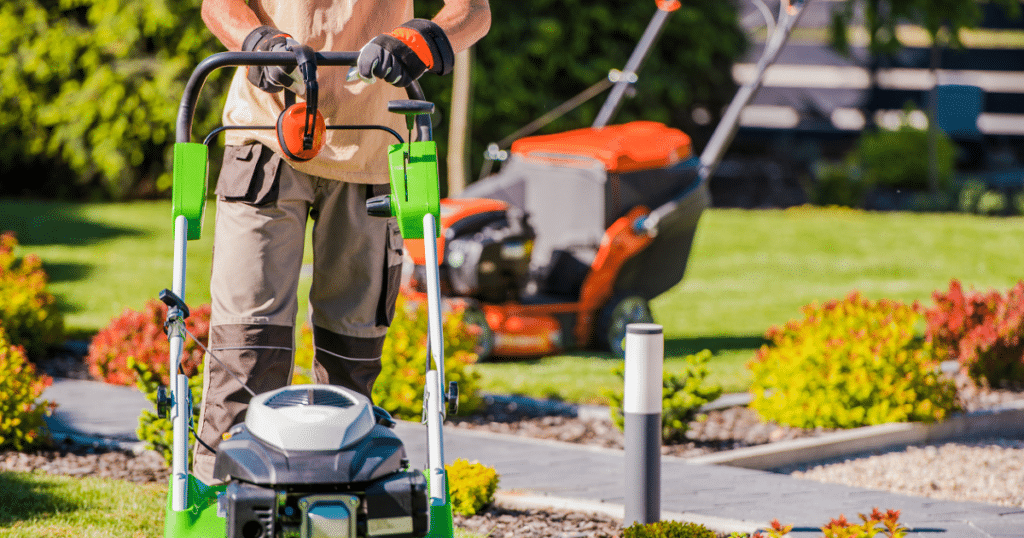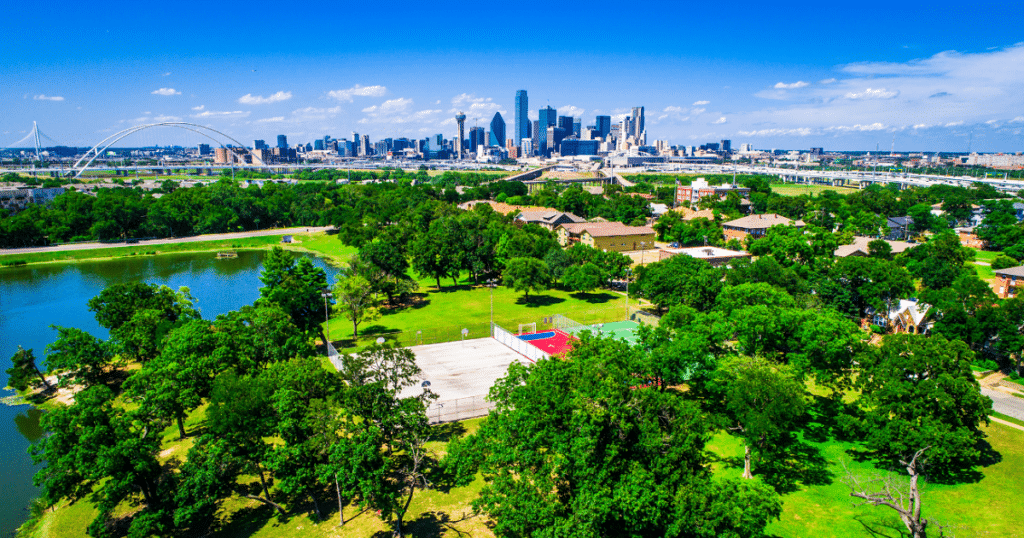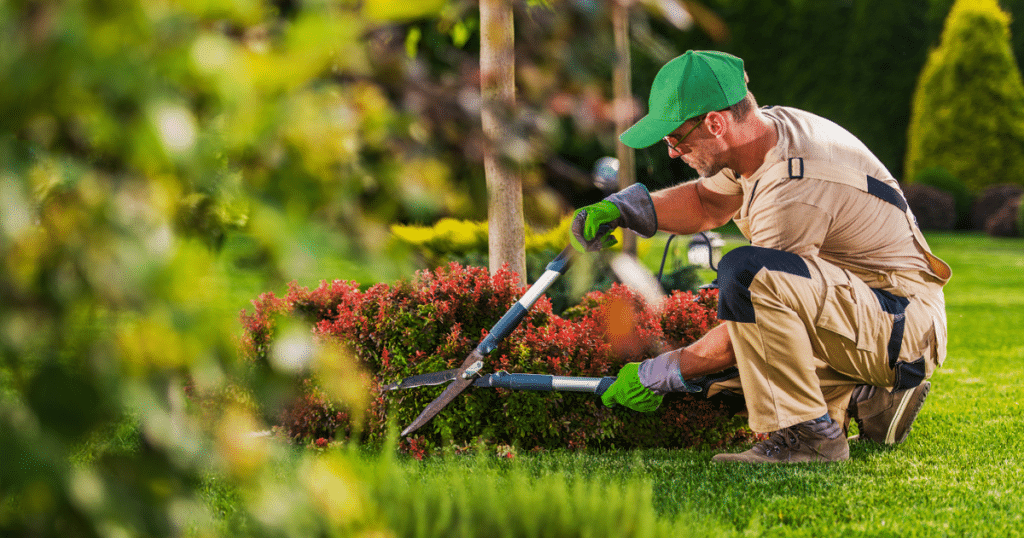
Are you tired of stepping into your backyard and feeling like you’ve stumbled into a jungle adventure? Fear not, dear reader, for we have just the antidote for your unruly foliage! In this delightful guide, we’ll uncover the secrets to determining the quality of a landscaper like a true horticultural detective, so you can bid farewell to overgrown chaos and say hello to a garden that would make even Mother Nature herself envious. Get ready to dig deep because we’ve got a treasure trove of tips and tricks waiting just for you!
To determine landscaper quality, start by checking their credentials, such as licenses, certifications, and insurance. Next, examine their portfolio to assess the quality of their previous work and see if it aligns with your aesthetic preferences. Lastly, don’t hesitate to request references and testimonials from past clients to gain insight into their overall satisfaction and the landscaper’s professionalism.
The Importance of Choosing a High-Quality Landscaper
Our landscapes are an extension of our homes, serving as an outdoor oasis where we can relax and unwind. A well-maintained landscape not only adds beauty to our homes but also increases the value of the property and overall curb appeal.
That’s why choosing a high-quality landscaper is essential for creating a space that you’ll love for years to come. A successful landscape project requires careful planning, design, and maintenance.
A professional landscaper with experience and expertise in the field can help you achieve your vision while also ensuring that your landscape thrives over time. Choosing the right landscaper can mean the difference between a beautiful, sustainable yard and one full of problems.
The Benefits of a Well-Designed and Maintained Landscape
There are numerous benefits to having a well-designed and maintained landscape beyond just aesthetic appeal. First, it creates an inviting environment that enhances your outdoor living experience. Whether it’s hosting family gatherings or simply enjoying a morning cup of coffee on your patio, a beautiful landscape provides endless opportunities for relaxation and entertainment.
Secondly, landscaping can help reduce energy costs by shading buildings during hot summer months or blocking cold winter winds from entering your home. This reduces heating and cooling costs inside your home, helping you save money on energy bills while also benefiting the environment.
Thirdly, investing in quality landscaping design can increase the value of your property significantly if done correctly. A beautifully designed garden or yard not only looks great but also serves as an investment toward long-term equity in your home.
A well-designed garden can encourage biodiversity by attracting wildlife, such as birds or butterflies, which are vital for pollination processes that grow plants properly. Trees absorb carbon dioxide from the air reducing greenhouse gas emissions, thus contributing positively towards climate change mitigation.
Your landscape sets the tone for your home and can be a reflection of your personality. A high-quality landscaper can help you create a unique and personalized space that reflects your style, interests, and values.
Hiring a high-quality landscaper is essential for creating a stunning outdoor space that provides numerous benefits beyond just aesthetic appeal. It’s an investment towards long-term equity in your property while also serving as an outdoor oasis where you can relax and unwind.
RELATED: Lost in the Landscape: Why Can’t I Find a Good Landscaper
Qualifications to Look for in a Landscaper
Proper Licensing and Insurance
When searching for a landscaper, it’s essential to know how to determine landscaper quality. Beyond just aesthetics, evaluating their expertise is crucial for a successful project. A key factor in assessing their quality is to verify their licensing and insurance, as different states may have specific requirements for landscaping services. By checking with your state’s licensing board, you can ensure that the landscaper you choose possesses the necessary credentials, enabling you to make an informed decision and secure top-notch quality for your landscaping needs.
In addition to licensing requirements, it is important to make sure that your landscaper has liability insurance and worker’s compensation insurance. Liability insurance provides protection should any damages occur during the landscaping project, while worker’s compensation insurance covers any injuries sustained by workers on your property.
Before hiring a landscaper, ask for copies of their license and proof of adequate insurance coverage. This will give you peace of mind knowing that you are protected should anything go wrong during the project.
Experience and Expertise in Landscaping Design and Maintenance
A high-quality landscaper should have extensive experience in both landscape design and maintenance. Look for a contractor who has been in business for several years and has a strong reputation within the community.
Ask potential candidates about their experience with specific types of landscaping projects such as water features, outdoor lighting, or hardscape installations. Additionally, inquire about their knowledge of different plant types and how they integrate them into design plans.
When considering experience, pay close attention to how they handle maintenance services as well. The right landscaper should be able to provide regular landscape maintenance services such as lawn mowing, trimming shrubs or trees, and applying fertilizers or pesticides, among others.
Knowledge of Local Plants, Soil, and Climate
A knowledgeable landscaper will have an understanding of local plant species that thrive in your area’s climate conditions as well as soil characteristics unique to your region. This expertise helps ensure that the plants selected for your landscaping projects will be able to thrive and grow in your yard.
A landscaper who is knowledgeable about local weather patterns can also help design a backyard that is well-suited to withstand the elements. To assess local knowledge, consider asking potential landscapers for recommendations on plant species that thrive in your area.
You can also inquire about their experience with soil testing and analysis. By selecting a landscaper with knowledge of local conditions, you are more likely to have a beautiful landscape that is sustainable long-term.
Portfolio Review
A landscaper’s portfolio is a collection of their past work, often presented in the form of pictures or videos. It can be an excellent way to assess the quality of their work, get a sense of their style and creativity, and determine whether they pay attention to detail.
However, it’s important to understand that not all portfolios are created equal – some landscapers may have more extensive portfolios than others, and some may have more experience in certain areas than others. Here are some key things to look for when reviewing a landscaper’s portfolio.
Assessing Style and Creativity
When reviewing a landscaper’s portfolio, one thing you should pay attention to is their style. Are they consistent in the types of designs they create?
Do they incorporate any unique elements or features that stand out? A good landscaper should be able to demonstrate a range of styles and design preferences to cater to clients’ preferences.
Another aspect worth considering is creativity. Good landscaping involves more than just planting flowers or trimming trees; it requires an imaginative approach that results in unique outdoor spaces that complement homes’ architectural designs.
Does the landscape designer take risks with new design approaches? Are there common elements between different projects?
Attention to Detail
Landscaping is all about paying attention to details; the best landscape designers focus on creating perfectly finished projects where every element fits together seamlessly. When you look at a potential landscape designer’s portfolio, ask yourself these questions:
- Does every single element look like it has been carefully considered?
- Are things such as plant placement adjusted appropriately?
- Are hardscaping elements such as patios or retaining walls properly built?
Remember that excellent landscaping looks natural while still requiring great attention to detail!
Examples Similar To Your Needs
When looking at any landscape designer’s portfolio, look for examples of projects that are similar to what you have in mind. This will help you envision the designer’s approach to your specific needs. For example, if you need a backyard garden designed for relaxing, look for past projects of landscapers who have created gardens or outdoor spaces with a sense of tranquility.
When discussing your project during consultations with the designer, refer to examples from their portfolio that they’ve conducted before and how they can be personalized to suit your needs. Finding a landscaper that has worked on similar projects in the past can give you confidence and provide inspiration when finding solutions for unique challenges.
References and Reviews
One of the best ways to determine the quality of a landscaper’s work is by checking references from past clients. By speaking with people who have worked with the landscaper before, you can gain valuable insight into their work ethic, communication skills, and overall level of satisfaction. When requesting references, be sure to ask for clients who had similar projects to yours in terms of scope and budget.
When speaking with past clients, ask specific questions about their experience working with the landscaper. Did they communicate regularly and clearly?
Were they responsive to questions or concerns? Did they complete the project on time and within budget?
Would they hire them again for future projects? These types of questions can help you get a better understanding of what it’s like to work with this particular professional.
In addition to speaking with references directly, it’s also wise to read online reviews on sites such as Yelp or Google. These review platforms allow customers to leave honest feedback about their experiences working with a particular service provider.
Look for patterns in the reviews – do multiple reviewers mention similar issues or areas where the landscaper excelled? Take both positive and negative reviews into consideration when evaluating a potential landscaper.
If there are any negative comments or complaints, assess how well the landscaper responded to those comments. Did they try to resolve the issue in a professional manner?
On the other hand, if there are many glowing reviews praising their workmanship and professionalism, that’s a good sign that you’re dealing with someone who is skilled in their craft. It’s important not only to read online reviews but also to take them into context, considering different factors like number and timing (the more recent review is more representative).
Digging Deeper: The Importance of Checking References
Checking references is a critical step in finding a high-quality landscaper. Not only does it help you get a sense of their work ethic and level of professionalism, but it can also help you avoid costly mistakes down the line. By speaking with past clients, you can get a better understanding of what it’s like to work with this particular professional and whether they are the right fit for your project.
It’s important not to rush through this step – take the time to speak with multiple references and ask detailed questions about their experience working with the landscaper. Doing so will help you make an informed decision about who to hire.

The Value of Online Reviews
In addition to checking references directly, reading online reviews is another valuable tool when evaluating potential landscapers. Sites such as Yelp or Google allow customers to leave honest feedback about their experiences working with a particular service provider.
While it’s important not to base your decision solely on online reviews (as they may be biased or fake), they can provide helpful insights into previous customer experiences that can help guide your decision. Look for patterns in the reviews – do multiple reviewers mention similar issues or areas where the landscaper excelled?
Assessing Negative Reviews
If there are any negative comments or complaints in online reviews, assess how well the landscaper responded to those comments. Did they try to resolve the issue in a professional manner? Did they respond at all?
On the other hand, if there are many glowing reviews praising their workmanship and professionalism, that’s a good sign that you’re dealing with someone who is skilled in their craft. It’s also important not just to focus on recent events but also to look for long-term trends on how positive/negative clients have been reviewing them along time (years)
Checking references and reading online reviews is a critical step in determining the quality of a landscaper’s work. By speaking with past clients and reviewing their feedback, you can gain valuable insight into the landscaper’s work ethic, communication style, and overall level of satisfaction.
Take both positive and negative reviews into consideration when evaluating potential contractors. It’s important to take the time to do your research before making a hiring decision – doing so will help you find a high-quality professional who can bring your landscaping vision to life.
RELATED: How Much Does It Cost to Get a Landscaper: From Dream Garden to Reality
Communication Skills: Assessing Your Landscaper
When considering a landscaper, it is important to evaluate their communication skills during initial consultations. This will give you an idea of how well they will understand and meet your specific landscaping needs. Here are some key factors to consider when assessing a landscaper’s communication skills.
Determine if They Listen Carefully to Your Needs
A good landscaper should take the time to listen carefully to your needs and preferences. This means that they should ask you questions about your goals for the landscaping project and work with you to develop a plan that meets those objectives. They should be willing to take the time needed to ensure that they fully understand what you are looking for.
Additionally, the landscaper should be willing to offer suggestions based on their experience and expertise while still keeping in mind your specific preferences. The best landscapers are those who can balance creativity and innovation with their client’s needs.
Offer Suggestions Based on Expertise
An experienced landscaper should offer suggestions based on their knowledge of plants, soil, climate, and other relevant factors. These recommendations can help improve the quality of your landscape design by ensuring that it is tailored specifically for your location. It is essential that these recommendations are presented in a clear manner so that you can easily understand why certain plants or features would be beneficial for your property.
Provide Clear Explanations
The best communicators provide clear explanations of important information such as pricing, timelines, materials used, and any other pertinent details related to the project. A reputable landscaper will provide transparency in all aspects of the process from start to finish; this not only helps build trust but also ensures there are no surprises along the way.
Maintenance Services Offered
Landscaping isn’t just about designing and installing a beautiful outdoor space. It’s also about maintaining it to keep it looking healthy and vibrant. Before choosing a landscaper, it’s important to ask about the maintenance services they offer.
Pruning and Trimming
One of the most important maintenance tasks for any landscape is pruning and trimming. This involves removing dead or diseased branches, shaping shrubs and trees, and controlling growth patterns. A professional landscaper should have experience with proper pruning techniques to ensure the health of your plants.
When discussing pruning and trimming with a potential landscaper, ask about their specific approach. Do they employ environmentally-friendly methods?
Do they use the right tools for each job? How often do they recommend these services be performed?

Fertilization
Fertilization is another crucial aspect of landscape maintenance that will help keep your plants healthy and thriving. A high-quality landscaper should have knowledge of different types of fertilizers, how to apply them correctly, and when to do so.
It’s important to ask a potential landscaper what type of fertilizer they use, whether it’s organic or synthetic. Synthetic fertilizers can be harmful to the environment if not used properly, while organic fertilizers are generally safer but may take some time for results.
Pest Control
Pests such as insects or rodents can wreak havoc on a landscape if left uncontrolled. Professional landscapers should have experience identifying common pests in your area and using appropriate treatments that are safe for people, pets as well as plants. When discussing pest control with a potential landscaper, inquire about their prevention methods first before asking how they deal with infestations since prevention is always better than cure when dealing with pest issues.
Irrigation System Maintenance
Watering your plants regularly is an important part of maintaining a healthy landscape. An irrigation system can be very useful in keeping your plants properly hydrated, but it must be maintained to function effectively.
A high-quality landscaper should have experience with the installation and maintenance of irrigation systems. They should know how to detect any issues with the system, such as leaks or clogs, and be able to perform repairs in a timely manner.
Scheduling and Pricing
It’s important to ask about scheduling and pricing for these maintenance services. A professional landscaper should be able to provide you with a clear timeline for when they will perform each service and what it will cost. When discussing pricing, ask if they charge hourly rates or use project-based pricing.
Make sure there are no hidden fees or extra charges that could come up later on. It’s best to establish clear expectations upfront so that you can plan accordingly for the long-term health of your landscape.
Pricing Structure
When it comes to hiring a landscaper, one of the most important factors to consider is their pricing structure. Understanding how they charge for their services can help you avoid any unpleasant surprises and make an informed decision about who to hire.
Here are some things to keep in mind when discussing pricing with a potential landscaper:
Hourly Rate vs. Flat FeeSome landscapers charges by the hour, while others charge a flat fee for their services. Hourly rates can be beneficial if you only need a few hours of work done, but if you have a larger project, a flat fee may be more cost-effective. Make sure you understand what services are included in the flat fee and ask for an estimate of how long the project will take.
Add-On Fees
Be sure to ask about any additional fees that may be added to the base price of the project. This could include fees for materials, transportation costs, or disposal fees for yard waste. Make sure these fees are clearly outlined and agreed upon before signing any contracts.
Budget Considerations
It’s important to have a budget in mind when hiring a landscaper, but don’t let cost be your only deciding factor. A high-quality landscaper may charge more upfront but provide better value over time through efficient maintenance practices or longer-lasting plants and materials.
Negotiation and Payment Terms
If you find that the price quoted by your chosen landscaper is higher than you anticipated or outside your budget, don’t hesitate to negotiate. You may be able to come up with creative solutions that still meet your needs without breaking the bank.
In terms of payment terms, most landscapers will require some sort of deposit upfront before beginning work. Make sure you understand the payment schedule and any consequences for late payments or cancellations.
Frequently Asked Questions
What are the good qualities of a landscaper?
Good qualities of a landscaper include creativity, attention to detail, knowledge of plants and design principles, strong communication skills, and the ability to work within budget and timelines.
What is landscape quality?
Landscape quality refers to the overall aesthetic appeal, functionality, and health of a landscape, taking into account factors such as design, plant selection, maintenance, and environmental sustainability.
What factors determine the landscape?
Factors that determine the landscape include climate, soil type, topography, available resources, client preferences, and intended use of the space.
What is the most important thing in landscaping?
The most important thing in landscaping is creating a harmonious and functional outdoor space that meets the client’s needs and enhances the beauty and value of the property.
Why choose a professional landscaper?
Choosing a professional landscaper ensures expertise, experience, and access to resources, resulting in a well-designed and maintained landscape that saves time, effort, and potentially costly mistakes for the homeowner.
What are the effects of the landscape?
The effects of landscape can be both physical and psychological, with benefits ranging from improved air quality, reduced erosion, and increased property value to enhanced well-being, stress reduction, and a connection to nature.
Conclusion
Choosing a high-quality landscaper for your project requires careful consideration and research. By looking for the right qualifications, reviewing portfolios, checking references, assessing communication skills, understanding pricing structures, and evaluating maintenance services offered, you can ensure that you select the best possible professional for your landscaping needs.
The True Value of Quality Landscaping
A well-designed and maintained landscape is a valuable asset to any property. A beautifully landscaped yard can significantly enhance your home’s curb appeal and increase its overall value.
A healthy lawn also has environmental benefits, such as improving air quality by absorbing carbon dioxide and producing oxygen while reducing pollution runoff in water systems. Choosing a high-quality landscaper will ensure that your yard not only looks great but also functions optimally.
Investing Wisely
Taking the time to choose a high-quality landscaper may mean spending more money upfront but it can save you money in the long run. The cost of low-quality work or having to redo poorly executed landscaping can be significant. Investing wisely in a professional who understands your needs will give you peace of mind knowing that you got what you paid for.
The Benefits of Working with Professionals
Professional landscapers have the experience and expertise needed to provide exceptional service while minimizing risks associated with landscaping projects. Additionally, they have access to the specialized equipment required for larger projects or complex designs that would be expensive or impossible for homeowners to acquire on their own.
An Ongoing Relationship
Selecting a high-quality landscaper means establishing an ongoing relationship with an expert who understands your needs and preferences over time. By maintaining this relationship, you will access knowledge about new technology or techniques that could enhance your property’s appearance further. Choosing a high-quality landscaper is critical to achieving a beautiful and functional outdoor space.
By following the steps outlined in this article, you can ensure that you select the best possible professional for your landscaping needs. Investing in a high-quality landscaper is an investment in your property, with long-term benefits such as increased value and reduced maintenance costs.
Working with professionals helps homeowners achieve their landscaping goals while minimizing risks associated with landscaping projects. Remember always to establish an ongoing relationship with your landscaper so that they can provide you with continued exceptional service as your needs evolve over time.






